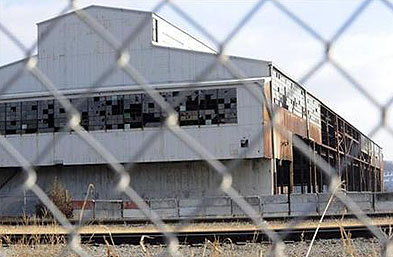Did Bain Capital under Mitt Romney earn its money fairly, or did they play some of the predatory private equity games that Dean Baker outlined yesterday, loading up on debt, shifting assets around, and defaulting on pension  benefits? Probably some of both. Reuters reports that in the case of Kansas City’s Worldwide Grinding Systems steel mill, there were a lot of the financial games going on:
benefits? Probably some of both. Reuters reports that in the case of Kansas City’s Worldwide Grinding Systems steel mill, there were a lot of the financial games going on:
[In October 1993] Bain and its partners decided to buy the mill for $75 million. Bain put up about $8 million to gain majority control of the company, renamed GS Technologies Inc….Bain got its money back quickly. The new company issued $125 million in bonds and paid Bain a $36.1 million dividend in 1994.
Pretty sweet. Over the next few months, Bain piled on more and more debt, totalling $378 million by 1995. But they managed the plant poorly and couldn’t compete with cheap Asian imports:
GS Industries declared bankruptcy on February 7, 2001, and said it would shut down the Kansas City plant, eliminating 750 jobs. In a press release, the company said the bankruptcy was triggered in part by “the critical need to restructure the company’s liabilities.”
Workers soon found out what that meant. In April, GS said it was shedding the guarantees it had promised its workers in the event of a plant closure….The U.S. Pension Benefit Guaranty Corp, which insures company retirement plans, determined in 2002 that GS had underfunded its pension by $44 million. The federal agency, funded by corporate levies, stepped in to cover the basic pension payments, but not the supplement the union had negotiated as a hedge against the plant’s closure.
Some investments don’t work out. That’s the free market for you. But does it seem right that Bain and its millionaire investors made a pot of money even though GS went bust and its workers lost a big chunk of their pensions? Maybe it does to Mitt Romney, but I imagine the rest of the country may feel a bit differently about it.
















